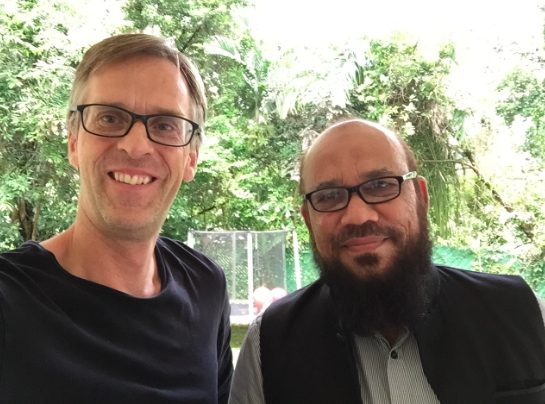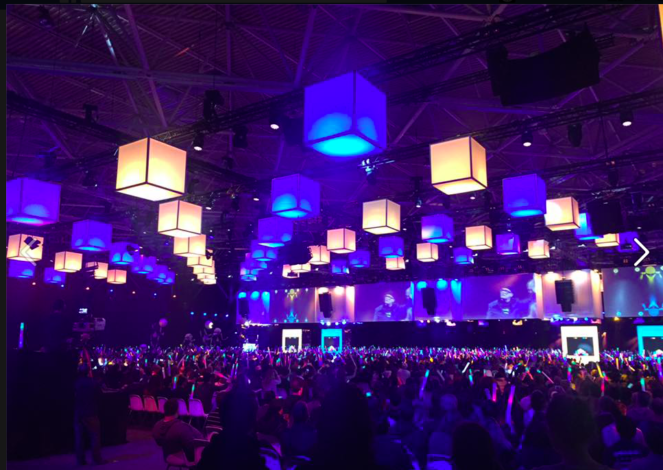“Keynote speakers are well paid, but just how much do they actually get paid?”
I get that question a lot. It is usually from people interested in becoming speakers, or from speakers just starting out.
To understand the pricing logic of keynote speakers we first have to understand that there are different kinds of speakers, or to be more specific there are different reasons people become speakers.
1) The Celebrity
These could be business leaders or celebrities from the entertainment or the sporting world who are asked to speak because the organizers want a “famous name” or a “famous story” to draw people to a conference, or to add some star quality to an event. In these cases the speaker is seldom paid based on his or hers skills as a speaker, but on the value of his or hers brand. So the fee the speaker gets is more of an advertising fee or a sponsorship deal than a professional fee for speaking – and that means that the fees can be very, very high.
2) The Professor
In this category we find people who are experts in their professions and because of that are paid to speak. They could be professors at universities, but also journalists at respected news organizations etc. The point here is that speaking is not their day job. They make their living some other way and then supplement their income with a few random speeches through out the year. That means that their fees are usually on the high side since they can pick and choose the speaking jobs that want, since they do not want so many.
3) The Instant Star
The instant stars are the speakers who suddenly find themselves in the spot light. Captain Sully (the captain that landed the plane on the Hudson river) or Captain Philips (the man behind the story that became the movie with the same name) or a person who gives a TEDx talk that goes viral. Suddenly everyone hears about this person and wants him or her at their conference. Instant stars find themselves with huge demand which makes their fees soar.
The problem they sometimes face is that their appeal can be short lived. They need to milk their appeal before they fade away from the limelight. No matter how hot a viral video is, it will soon be substituted by another viral video. No matter how popular an American Idol winner is, most of them will quickly disappear after the season is over and a new star takes their place. And that hot speaker everyone wanted is suddenly replaced by another hotter speaker.
I guess this category should be called “the shooting star” – a lot of bright lights and attention, but for a short period of time. Former instant stars will find themselves struggling to find high paying speaking gigs after the temporary appeal has faded, just like former American Idol winner from a few seasons ago find themselves performing in shopping malls in third tier cities …
If you are an Instant Star, make sure you transition to a “thought leader”, a “professional, professional speaker” or a “celebrity” to be able to keep your fees up.
4) The “thought leader”
Most speakers probably fall into this category. These are the “bread and butter” speakers at many conferences. These are people who are experts in a subject and who use this expertise to both speak, train, coach and consult etc. They tend to charge medium or high fees for speaking.
If they are more “trainers” than “speakers” their fee is generally lower as they are trying to break into the speaking industry.
5) The Hidden Agenda
In this category I put the speakers who speak to get business. It could be a consultant trying to get consultancy work, a sales person trying to sell his or her company’s products or services. A speaker trying to sell assessments, surveys or software, like e-learning platforms and so on. Many industry conferences live on booking speakers like this.
The organizers know that speakers who see speaking as an opportunity to sell something from the stage will be much more inclined to reduce their fee, or even speak for free, since their primary reason to speak is to sell these other products. If speaking is your main, or only, business, you will be much more focused on keeping the fee structure high.
A speaker who is only there to speak – not to sell – has no hidden agenda. And a speaker there to sell is not a speaker, he is a sales person doing a sales pitch. And that’s why they do not get paid, or if they do get paid, get paid less than true professional speakers.
6) The Idealist.
The idealist is someone who has a full time job and who thinks that speaking at conferences is a way to get their message out. It could be a government official, a marketing person, a person at a NGO etc. They usually do not see speaking as a way to make money, but as a way to a) get their message out effectively or, b) have some fun in their mundane, normal job. Because they do not look at speaking as a business they do not treat it as a business, thus they tend to be very bad at negotiating high speaking fees.
7) The professional, professional speaker.
In this category are the speakers who only speak. (I am in this category). The professional, professional speakers are pure keynote speakers who live on just doing that. Their fees are in the high, but not super high, range (unless they are in the “celebrity category” of course, like Malcolm Gladwell or Seth Godin where the fees go way up again.) You can of course fall into more than one of these categories.
After we know what kind of speaker a speaker is we then have to understand how interested person is to speak.
The fee of a professional speaker is, more than anything else, a matter of “supply and demand” – Demand, as in clients interested in booking the speaker. Supply, as in the persons willingness to be a speaker. (Some people might be in huge demand to give speeches, but might not want to give a lot of speeches (Think Barack Obama) then the price will go up to almost astronomical amounts. Having said that, we also have to take into consideration what the speaking opportunity means for the speaker. A speech on the TED stage is not paid, as the speakers realize that delivers an amazing platform to reach out with ones message. Same with a talk at the World Economic Forum. A speech at a local Rotary is not paid at all, even if the speaker normally charges tens of thousands of dollars, for no other reason than you can not expect to be paid when speaking at Rotary, and so on.
There is also different speaker markets. If you only go after schools and universities then the fees per speech might be lower than if you are going after banks and other commercial companies.
And the speaker industry is more or less developed in different countries, that sometimes affect the speaking fees a speaker can charge. Finally we need to understand that a speaker’s fee will go up in correlation how long he or she will be away from home. (A speech in the speaker’s hometown tend to be much cheaper than a speech requiring a intercontinental flight.)
I hope you are starting to see where I am going with this. There is no “one answer” to how much a speaker charges for a speech. It could be nothing, $2000, $5000, $10 000, $20 000, $50 000 or $ 150 000.
The point to understand here is that the speaker market might look simple at first glance: “Pay a speaker for an hour” and it might generate a simple question: “How much does a keynote speaker charge?” But look deeper and you see that the industry is a bit more complex and that it is not so simple to give a simple answer to a question like that. In the end the market sets the price and supply and demand kicks in.
As I write this blog for people interested in taking their speaking to the next lever, or for people interesting in the speaking industry, the lesson here is that a speaker needs to figure out what kind of speaking category they fall into, what kind of category they want to belong to – and then how many speeches the speaker wants to deliver in a year.
If you want to do 200 speeches in one year, the chance of the happening if you lower your fees a bit. If you just want to do 15 speeches in a year, then the fees per speech can be allowed to go up so that you loose some speaking requests because you have out-priced yourself.
As a speaker it’s important to understand what the market is charging, what your competitors are charging, and what clients are willing to pay – but much more important to be aware of the number of speeches and the kind of conferences you want to speak at – and ultimately – what kind of speaker you are.


